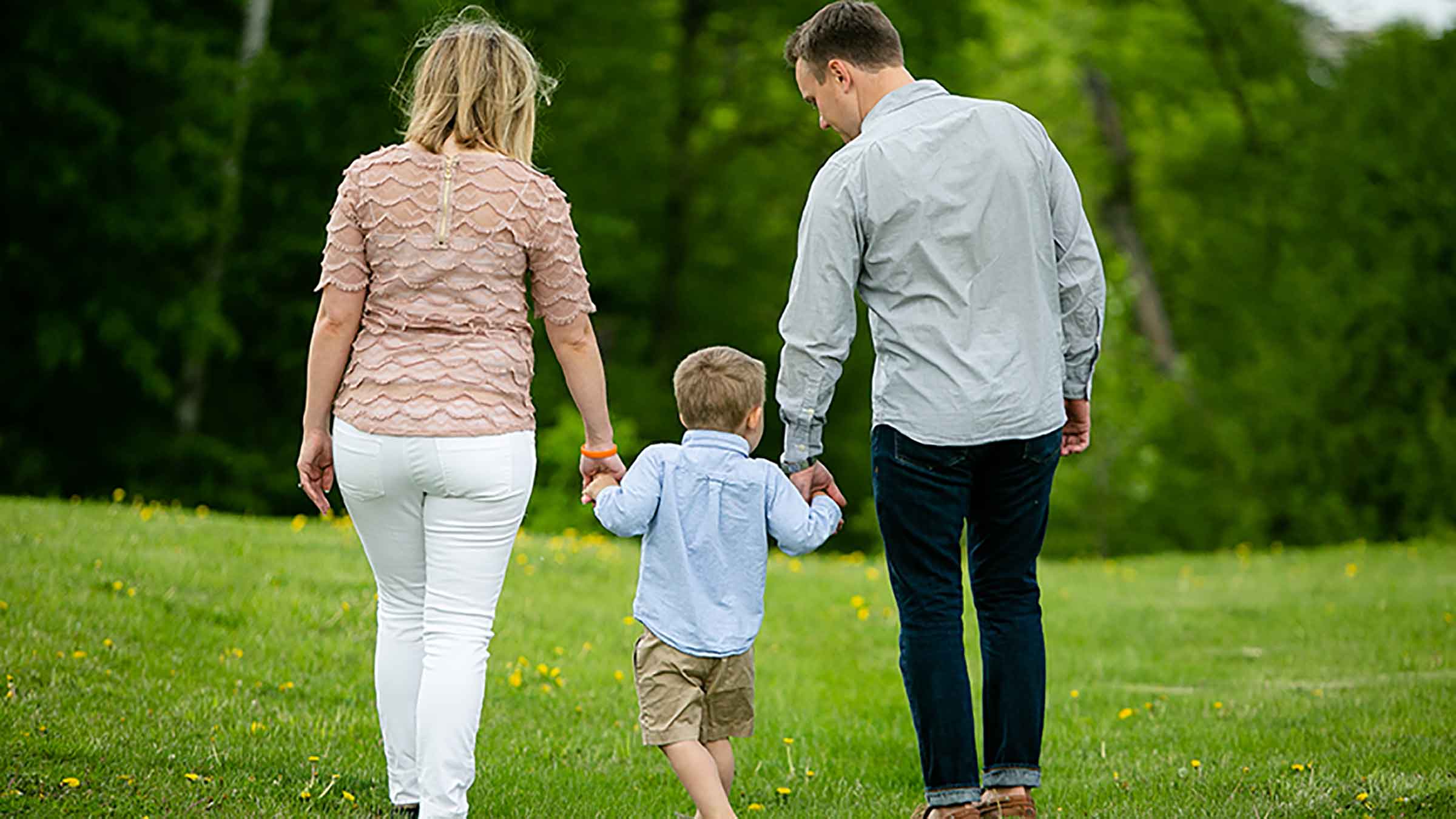
How to Gently Explain Cancer to a Child
Explaining a loved one’s cancer diagnosis to a child can be challenging. What do you say? How do you answer their questions?
To help you with these questions, we asked an expert on the topic to offer advice. Mary Farr, a retired pediatric hospital chaplain, shares how to gently explain cancer so your child can understand.
1. Practice Beforehand
Before the conversation, consider practicing what you’ll say. To start, you can jot down some bullets that outline what you want to share. Once you’ve got what you want to say down, ask a friend or family member to get practice talking about it with someone else.
Rehearsing what you’d like to say can help you feel more confident and make sure you cover everything you want to say. But please note, conversations don’t always go as planned. Give yourself some grace and know that there may be some questions you don’t have the answer to. A good plan is to just be honest when you’re not quite sure.
Tip: Books and videos can help supplement the conversation by offering a more visual explanation. For instance, “A Kids Book About Cancer” by Dr. Kelsie Storm and Sarah Porter can help take away the fear around cancer while it offers a basic understanding to both grownups and kids.
You might also consider the video Kids Just Like You—What is Cancer? This short video features young cancer patients talking about cancer from their perspective. It’s both inclusive and encouraging.
2. Choose a Comfortable Space
Find a space that is both comfortable and familiar to your little one. It’s not unusual for children to think that the diagnosis is somehow their fault. While this is normal, you can help them feel supported by creating a safe space in which they are able to express their questions and emotions.
This place can be their bedroom, a special play area or somewhere that helps your child feel comforted. If your child has a favorite toy or blanket, make sure it’s nearby to add some reassurance.
3. Seek Advice From Doctors and Caretakers
Remember that doctors and caretakers are there to support you. Before explaining a diagnosis to your child, consider asking for advice from your doctors and others on your care team. These professionals can offer guidance for how to break down these topics for younger children.
You also can ask someone from your care team to be there with you for the conversation. Whatever you choose to do, know that you don’t have to go on this journey alone, and that plenty of people are both knowledgeable and available to support you.
4. Be Honest
Bringing your child into the conversation about the diagnosis means being honest about what the child and your family can expect. If the diagnosis is for someone in your immediate family, you may also explain that special caregivers will likely be coming to your home to visit.
While honesty is important, try to stay optimistic. Answer a child’s questions while also confirming that doctors are working their absolute hardest to help your loved one be healthy.
5. Continue the Conversation
Depending on your child’s age, the discussion likely won’t stop after the initial conversation. Encourage questions at any time in the journey, and remind your child that it’s okay to feel sad or confused about the diagnosis. Keeping children updated with any changes will help minimize those feelings of confusion and isolation.
To allow a child to feel more comfortable asking questions, consider starting a journal in which you and your child can write messages to each other. Children can learn to express their feelings through words, while also writing a special note to you. You might include a “Question Board” in your house for kids to write down any thoughts or feelings they would like to share with you.
6. Show Them Love & Affection
Finally, we understand that every child is different, and each one will respond differently to learning about a cancer diagnosis. A young child might not be able to grasp what cancer is, while a teenager might have pre-existing ideas.
No matter what age your child is, they’ll benefit from feeling loved and supported. Remember that this could be a scary and confusing time for them, too. Any reassurance of your unwavering love and support can help ease some of the tension. Listen to them if they express concerns, and be there for them when they need you.
What’s Your Story?
We want to hear from you. If you or a loved one has faced cancer, how did you explain it to your children? Feel free to share your stories and advice in the comments below.
Don’t go through your health journey alone.
You can stay connected to friends and family, plan and coordinate meals, and experience love from any distance.
All of this is ready for you when you start your personal CaringBridge site, which is completely free of charge, ad-free, private and secure. Don’t spend another minute alone!